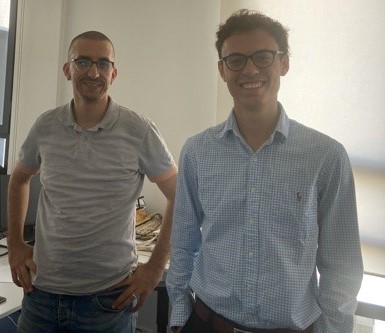Breaking the Foreign Research Bubble: Experiences from Morocco
The thermometer approached 120 degrees in Zagora, a Moroccan oasis town on the edge of the Sahara Desert, and I decided it was the right time to take a walk. As I strolled through the sleepy town in the stifling July heat, a young local – apparently the only person in the town not napping in the shade – approached me on a creaky, old mountain bike. “Smiti Yassine,” he said – my name is Yassine.

Yassine, as I learned, was exactly my age, at 20, and employed in a mechanic’s shop down the street. As it turned out, Yassine was quite the polyglot. He had picked up several languages from the travelers who passed through his shop. “We fix the cars of the tourists who come to drive across the Sahara,” he explained excitedly, switching into Spanish with ease as my rudimentary Moroccan Arabic broke down. Despite never having left his hometown, Yassine knew much about the world - he learned not by seeing through his own eyes, but from the travelers who passed through his shop. As he bid me farewell in front of the off road truck about to take me into the desert, Yassine smiled. “The most important thing is to listen,” he said.
As I learned from Yassine, much can be learned from conversations with the people we meet. Yet as travelers and researchers, it can be difficult to break the barrier with locals when we work abroad. Our interactions are often with fellow researchers from around the world, within internationalized environments like research conferences at universities or think tanks. These events can be very impactful, and they are certainly key to sharing work across the global academic community. But they can also create a disconnect from the experience of everyday people.
"This is important work – but it only makes sense insofar as it relates to the perspectives and experiences of the people affected by the questions being studied." Elliott Mokski
Much like the very real “Harvard bubble” in Cambridge, these events and institutions can create a bubble for researchers working abroad. I saw this firsthand through my research at a major think tank in Rabat, the capital of Morocco, where I was interning through Evidence in Policy Design’s (EPoD) Evidence Corps Internship Program. I spent the day deploying machine learning models to assess the impact of the fertilizer market on food security in the developing world. This is important work – but it only makes sense insofar as it relates to the perspectives and experiences of the people affected by the questions being studied. Even though I was on the ground, it became tempting to lose touch of the reality behind the work I was pursuing. My technical focus led me to think of food security in ever more abstract ways: as a product of trade flows, supply constraints, and exogenous shocks.
This level of abstraction is a problem for several reasons: first, it leads to research of lesser quality. Without the valuable insights of people who actually experience the issues being studied, major elements can be overlooked and left out of the research analysis. Second, not engaging with locals can be a major missed opportunity of personal development for researchers themselves. So much can be learned through conversation with people from different countries, cultures, and backgrounds.
"Over the course of my summer in Morocco, I learned a great deal from attending conferences and seminars. I developed new technical and analytical skills through my research work. But ultimately, I learned the most from the spontaneous conversations I had with strangers, colleagues, and friends I made along the way." Elliott Mokski
Therefore, it is critical for researchers to break the bubble. But, in practice, this is difficult. When push comes to shove, unexpected constraints emerge, like the language barrier or limited time and energy. How, then, is one to bridge the gap with locals and truly engage with one’s host country?

Getting to know one’s coworkers and research partners outside of the office is one good approach. I learned a great deal about Morocco around lunches of tajine with my colleagues and through late afternoon tea breaks. Starting a chat with strangers in a line or on public transit can be an opportunity to form new friendships. And of course, taking courses in the local language will open up a network while giving you greater insight into the local culture. Locals are generally delighted to converse if you put in the effort to learn their language; many foreigners don’t, so knowing even the basics will set you apart and open a world of possibilities.
Over the course of my summer in Morocco, I learned a great deal from attending conferences and seminars. I developed new technical and analytical skills through my research work. But ultimately, I learned the most from the spontaneous conversations I had with strangers, colleagues, and friends I made along the way. All it takes to make a new friend is a bit of bit of courage, just like Yassine who approached me that day in the Sahara.






